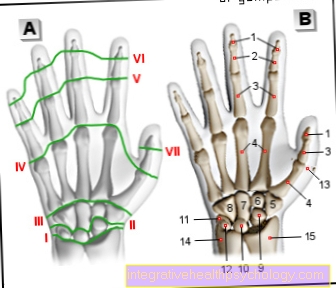hoarseness
Synonyms in a broader sense

- cold
- to cough
- diphtheria
- Croup
- Pseudo croup
English: hoarseness
introduction
Hoarseness can have various causes, which we would like to go into in detail in the following topic.
Possible causes include inflammation, swelling, paralysis, and irritation of the vocal folds.
causes
There are several causes of hoarseness, the most common ones being:
- Inflammation of the throat and larynx
- Disorders of the mobility of the vocal cords (vocal cord paresis)
- Throat cancer
- Injuries
- Recurrent palsy
Inflammation of the throat and larynx
Acute laryngitis, acute laryngitis and subglottic laryngitis (pseudo croup):
Recurring infections in the area of the nasopharynx (tonsillitis, runny nose, sinusitis) favor the inflammation of the nearby larynx.
You can find further information under our topics:
- Pseudo croup
- sniff
- Sinus infection
- Anatomy larynx
Chronic laryngitis, chronic laryngitis, chronic laryngitis:
Unhealed colds and chronic inflammations in the throat area (chronic runny nose (rhinitis), sinusitis, adenoids / polyps, bronchitis) and smoking can lead to permanent inflammation of the larynx
Also read our topic: Polyps
Diphtheria, true croup, croup cough:
Shortness of breath and the danger of suffocation are the greatest complications of the "real" croup. The germ Corynebacterium diphtheriae is also able to produce its own poison (diphtheria toxin). This poison can damage numerous organs. The vaccination is nowadays coupled with other vaccines and is first recommended in the 3rd month of life.
You might also be interested in this topic: diphtheria
Glottic edema, vocal fold edema, vocal fold swelling:
Epiglottitis occurs in small children but also occasionally in adults as part of a viral infection or a bacterial infection of the upper respiratory tract. Dry cough accompanies a hoarseness.
Read more on the topic: Homeopathy for bronchitis and cough or symptoms of vocal cord inflammation
Vocal cord mobility disorders
- Recurrent paralysis, recurrent palsy, paralysis of the recurrent nerve
A small nerve near the larynx (the recurrent nerve) can occur during thyroid surgery but also with other diseases (Throat cancer) and operations near the larynx, e.g. operations on the thyroid / Goiter, get injured and fail. The result is a paralysis of one Vocal cord in the larynx. The patient notices one Weak voice and Hoarseness. - Job-related
Decades of vocal use, working with vapors, chemical substances or dusts can lead to a later restriction of vocal fold mobility and cause a rough voice or hoarseness. - Vocal cord paralysis
If the vocal cords have not been immobilized enough by silence in a laryngitis, this can result in insufficient vocal fold closure. - "Greisenstimme", age-related hoarseness
In old or very weak people, the tension in the vocal cords can decrease and cause hoarseness. As with all other tissues, the elasticity of the vocal cords decreases with age. - Stroke, cerebral haemorrhage, bulbous palsy (N.X)
After a stroke in a specific area of the brain, the core of the larynx nerve can be affected and paralyzed. The consequences are hoarseness, weak voice and difficulty swallowing.
Also read: stroke and Cerebral hemorrhage
Larynx tumors
Benign tumors (polyp, nodules, papilloma):
Vocal cord nodules get especially people who use their voice constantly and intensely. This includes certain professional groups such as singers and teachers. But children can also develop vocal cord nodules through excessive crying (so-called screaming children).
Larynx cancer, larynx cancer, vocal cord cancer:
It is predominantly men who get sick in old age. This tumor has been observed more frequently for around 70 years and is explained by an increase in environmental toxins. First and foremost harmful substances are cigarette smoke!
Injuries from the larynx
Intubation damage after an operation under general anesthesia:
At a general anesthetic the ventilation hose (tube) is pushed directly between the vocal cords (intubation). The vocal cords can be affected by irritation or injury.
Larynx trauma / larynx injury:
In the event of accidents, falls or fights, the Larynx get hurt. In addition to swelling, pain and shortness of breath, hoarseness occurs.
Scalding / chemical burns:
Excessively hot vapors or toxic aerosols can damage the vocal cords if accidentally inhaled. The vocal cords usually react with swelling.
Foreign body:
Inhaled foreign bodies (insects, crumbs) can get stuck in the larynx and restrict the function of the vocal cords. In addition to the hoarseness, there is also also a shortness of breath.
Narrowing, stenosis:
In the case of thyroid enlargement (retrosternal Goiter) the space of the trachea and larynx can be narrowed. Tumors (esophageal carcinoma, Esophageal cancer) in the upper chest area (mediastinum) can restrict the mobility and space of the larynx.
Hoarseness with cough
Hoarseness occurs in many cases as an accompanying symptom of a strong cough on. The combination of both symptoms is usually one Indication of a viral or bacterial infection of the respiratory tractRespiratory tract. Come for such an infection about 200 different pathogens in question. For this reason, before the Determination of the causative agent a limitation can be made. This can be done, for example, based on the age of the patient concerned.
While bacterial infections of the upper respiratory tract in infants and children are quite common, the symptoms "cough and hoarseness" in adults mostly by viruses evoked. Cough, which is associated with hoarseness in the course of a respiratory infection, is in principle a useful one Defense reaction of the organism through the Cough reflex the causative pathogens can be transported from the airways. In the case of an infection of the respiratory tract, the affected patients often experience a cough and hoarseness in addition to Increase in body temperature (fever), Fatigue and exhaustion. Also include Muscle, head and limb pain to the typical symptoms of a virally induced respiratory tract infection.
The Treatment of the symptom combination "cough and hoarseness" is always directed according to the underlying cause. At bacterial infections usually needs a antibiotic therapy be initiated. On the other hand, there is a cough and hoarseness viral infection based, can only be one symptomatic treatment respectively. Affected patients should refer to a adequate hydration respect, think highly of. High fever may be with antipyretic drugsMedication, for example Paracetamol and Ibuprofen be lowered. The taking of Cough suppressants however, is now controversial and should only be used when it is particularly strong to cough should be considered.
Hoarseness in the presence of an allergy
A allergy can cause various complaints in the affected person. Next watery eyes, stuffy or runny nose, and coughCough, hoarseness is one of the typical symptoms of an allergy. In addition, if there is a pronounced allergic reaction, a Impairment of breathing come.
The hoarseness that resulted in a little pronounced allergy occurs (for example with allergic reactions to pollen and / or grasses), can usually by simple Home remedies be alleviated.
People who participate in a severe allergic reaction suffer, however, should also have a so-called Antiallergic (Synonym: Antihistamine) take in. This Medication Act that, in the case of an allergy, increased Histamine, against. Histamine causes one in the respiratory tract Narrowing of the airwaysRespiratory tract. As a result, the people affected suffer from Difficulty breathing symptoms. In addition, the Mucous membranes in the area of the nasopharynx increasing due to the allergic reaction dry out. For this reason, the hoarseness caused by an allergy can already be caused by a adequate hydration be treated. In addition, you can special throat lozengesthat contain essential herbs are ingested. The herbs ensure that the irritated mucous membranes in the area of the nasopharynx are soothed.
People who participate in a allergy sufferers associated with hoarseness should also try that avoid causal allergens as much as possible. In the case of a pronounced allergic reaction, in addition to the hoarseness complaints such as Difficulty breathing and abnormal skin conditions elicits should a specialist must be consulted urgently. Depending on the severity of the allergy, there may be one potentially life threatening situation come.
Hoarseness in babies and children

There can be many causes for the occurrence of hoarseness in children and babies.
Especially in the course of an infection of the upper respiratory tract, both children and babies often experience hoarseness. In most cases, this symptom is accompanied by an inflammatory reaction in the throat, larynx, or vocal folds. In the course of the infection, especially in children and babies, fluid can accumulate in the mucous membranes of the upper respiratory tract. This leads to local swellings which cause hoarseness but are in most cases completely harmless.
Hoarseness caused by a cold with children usually heals complete within a few days and without permanent impairment of the voice. Other causes for the occurrence of Hoarseness in children or with the baby allergic reaction. Affected children and babies should be timely to be presented to a pediatrician. Once the trigger of the allergic reaction has been identified, a symptomatic treatment initiated become. Although the most causes for the appearance of hoarseness in children and in the baby completely harmless are, potentially life-threatening diseases must be ruled out.
Especially with Young children or babies aged six months to five years, the hoarseness can be an indication of one Pseudo croup attack be. The term "Pseudo croup“(Synonym: Krupphusten) means one Upper respiratory disease caused by viral pathogens. In general it can be assumed that about 15 percent of the children between the sixth month and the fifth year of life at least one pseudo croup attackSuffering from pseudo croup. In older children however is the Pseudocroup attack extremely rare. With an infection of the upper respiratory tract the mucous membranes in the area of the throat and larynx swell on. This causes in school children and adults due to the comparatively large trachea diameter no problems whatsoever. Both in small children and in babies, however, the airways have a significantly smaller diameter. The local swelling of the airways can cause the Breathing restricted in those affected become. It comes to a pseudo croup attack. Typically, such an attack announces itself Hoarseness and dry, barking coughCough that is in the most cases in the evening or at night occurs. In addition to the increasing hoarseness, the affected children suffer from Difficulty breathing and wheezing when inhaling (so-called inspiratory stridor). The shortness of breath caused by the blockage of the upper airways can in some cases life-threatening accept. For this reason, the first time the symptom combination "hoarseness, barking cough and shortness of breath" see a pediatrician immediately.
If a pseudo croup attack occurs, parents of affected children can get through Correct action can positively influence the course of the seizure. In this context it is particularly important that the Parents stay calm and reassure the affected child (or baby). Excitement and stress can make the Airways constrict faster and thus the shortness of breathShortness of breath increases rapidly. In addition, can cold air help to reduce the swelling of the mucous membranes. Of the Pseudo croup attack , which is usually associated with hoarseness with appropriate treatment within a few minutes without further complications. In addition, it can be observed that children or babies who have frequent such seizures have a Age five to six years completely free of seizures become. The reason is that growth-related increase in trachea diameter.
therapy
Hoarseness, in most cases, occurs suddenly and without warning. Since communication in everyday working life in particular is severely restricted by a sudden hoarseness, many people concerned ask themselves what can be done about the symptoms (what helps against hoarseness?). Often it is already simple home remedies that can help to combat hoarseness quickly and effectively.
The most important treatment method for acute hoarseness is the absolute ban on speaking. Hoarseness is usually caused by inflammatory processes in the area of the larynx, vocal cords or throat. In many cases the development of the hoarseness is also due to an overload of the vocal cords. While speaking, the vocal folds are increasingly stressed, regardless of the actual cause of the hoarseness. Trying to speak despite hoarseness can therefore lead to the healing process being significantly prolonged. Whispering in particular should be avoided in acute hoarseness. The reason for this is the fact that the vocal folds rub against each other and are thus irritated, especially when speaking softly. The absolute ban on speaking is therefore something that actually helps to treat the hoarseness quickly and effectively (what can be done about hoarseness?).
You can find out more about the topic here: Swollen vocal cords
In addition, the external supply of heat is something that affected persons can do against acute hoarseness. In this context, putting on a scarf or potato wrap can help to positively influence the healing process. In addition, hot food and drinks, such as soups or tea, have a calming effect on the irritated vocal folds. Warm chicken soup is also said to have an anti-inflammatory effect and thus contribute to faster healing of the inflammatory processes in the area of the larynx, the vocal cords and / or the throat.
In addition, temporarily avoiding irritants such as tobacco, alcohol and hot spices is something that helps against acute hoarseness.In the case of pronounced discomfort and / or hoarseness associated with a severe sore throat, moist air and essential oils are among the most popular treatment methods. In the case of pronounced hoarseness, sufficient air humidification should always be ensured. Dry air can worsen the symptoms and negatively affect the healing process. Affected people can hang damp towels in the room or place them on the heater, thereby increasing the humidity. In addition, essential oils, especially peppermint, thyme and lavender, are something that actually help against acute hoarseness.
Furthermore, the Wick Vaporub® cold ointment can be purchased without a prescription in the pharmacy, which can help relieve hoarseness when inhaled.
Read more on the topic: Medicines for hoarseness
Homeopathy for hoarseness
A hoarseness responds well to homeopathic treatments and medicines.









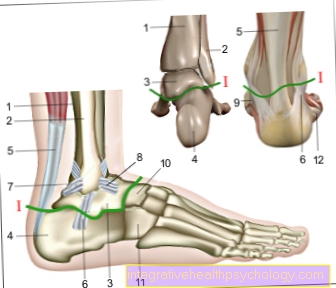
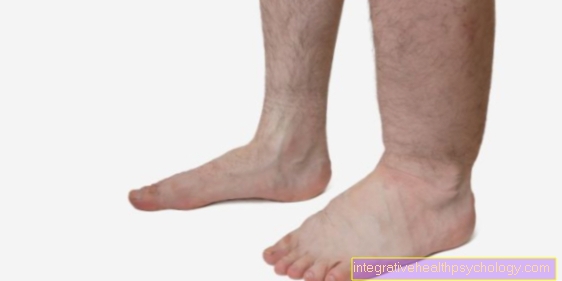
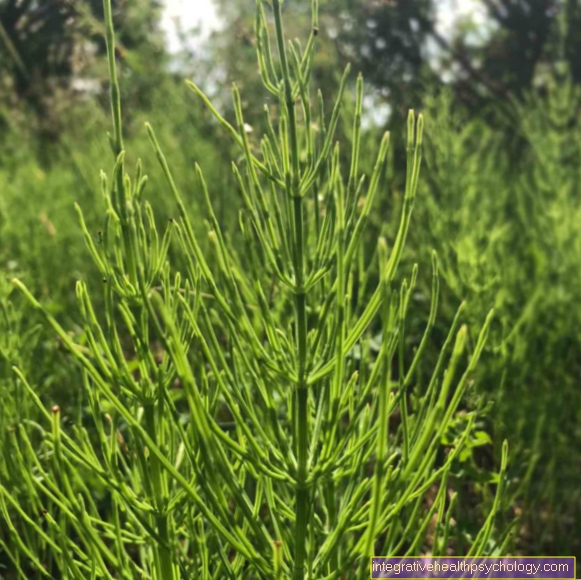










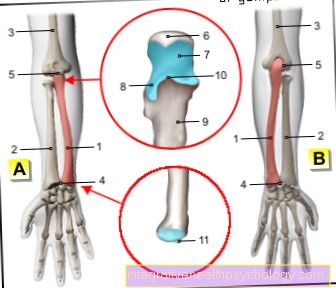
.jpg)


